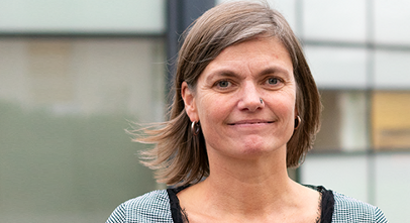Menopause and the workplace

During The Open University’s 50th anniversary celebrations, Jo Brewis, Professor of People and Organisations in The Faculty of Business and Law, delivered her inaugural on the effects of menopause in the workplace.
Her lecture highlights the OU’s track record for research which turns ideas into solutions that benefit people, business and society.
Jo called for employers to pay careful attention to the menopause as it affects the fastest growing group in the workplace.
Watch the video of Professor Brewis’ inaugural lecture:
Menopause and the workplace
About Professor Brewis
Professor Brewis joined The Open University in April 2018 in the Department of People and Organizations in the Business School. She has worked previously at the Universities of Portsmouth, Essex and Leicester. Throughout her academic career, Professor Brewis has been fascinated by the connections between gender, the body, sexuality, emotions, identity, organizing and organizations. These interests come together in her ongoing research on menopause and the workplace.
Study related curriculum
Contact our news team
For all out of hours enquiries, please telephone +44 (0)7901 515891
Contact detailsNews & articles

The FUNdamentals: Why fun matters more than we think
In a world that feels increasingly serious and pressured, fun can seem like a guilty pleasure — something optional, even frivolous. But what if fun isn’t an add on at all? What if it’s essential?